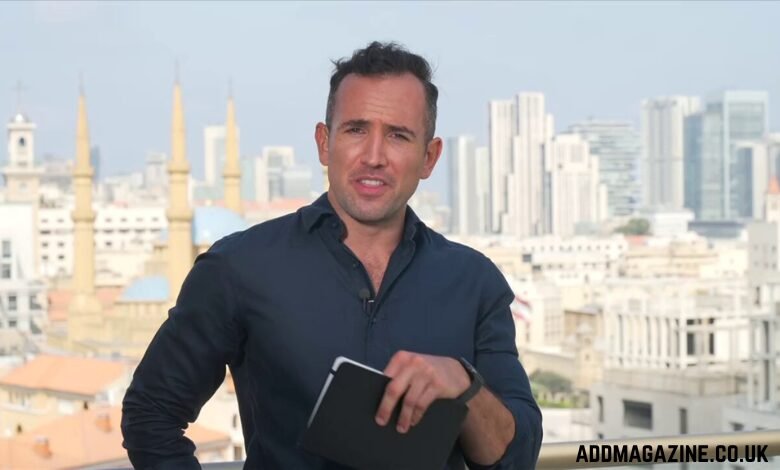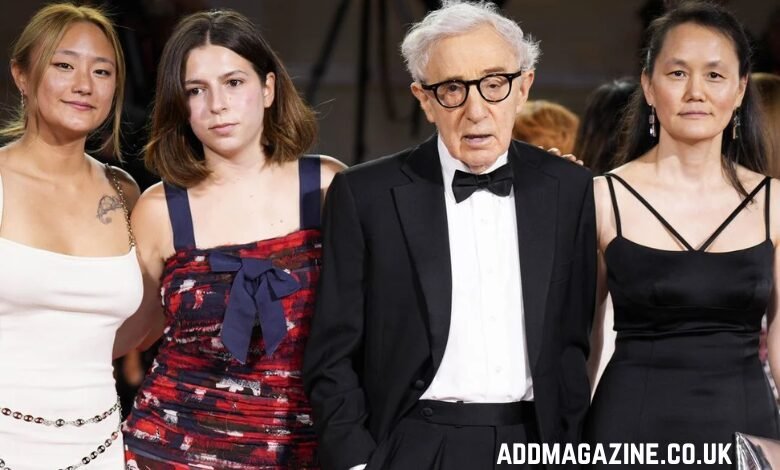The name Hugo Bachega is familiar to anyone who closely follows global news. As a journalist and correspondent for the BBC, he has reported from some of the most challenging environments in the world. His coverage of international conflicts, humanitarian crises, and political transitions has placed him in the public eye. Yet, beyond his professional work, audiences often notice his accent and wonder about his background.
This curiosity about his accent is tied to larger questions about identity, nationality, and the multicultural nature of journalism. In this article, we examine who Hugo Bachega is, his career path, his Brazilian roots, his work with global media, and why his accent has become a point of discussion among viewers.
Early Life and Nationality
Hugo Bachega was born in Brazil, making him Brazilian by nationality. Brazil, as the largest Portuguese-speaking country in the world, gives its citizens a distinctive linguistic background. Portuguese is the official language, and Brazilians often carry elements of Portuguese phonetics even when speaking other languages such as English or Spanish.
For Bachega, his Brazilian heritage is the foundation of his identity. While he has built his career abroad, particularly in the United Kingdom, his accent reflects both his origins and his international exposure.
Career Beginnings: From Reuters to the BBC
Bachega’s journey in journalism began at Reuters in Brazil. At Reuters, he honed the skills necessary for international reporting—research, accuracy, and objectivity. Working in a news agency environment provided him with experience in covering fast-paced developments.
Later, his career expanded beyond Brazil. He transitioned into roles that required him to report on global affairs. His ability to operate in different cultural contexts and languages made him well-suited for foreign correspondence.
Eventually, he joined the BBC, one of the world’s leading broadcasters. At the BBC, he has reported from critical regions, including Ukraine and the Middle East, providing audiences with reliable updates during times of conflict.
Hugo Bachega’s Accent: Why People Notice
Viewers who watch Bachega on the BBC often comment on his accent. It is not unusual for international correspondents to stand out because of the way they speak. In Bachega’s case, his accent reflects a mix of Brazilian Portuguese influences and the impact of working in English-speaking environments.
Key aspects include:
- Portuguese roots: Certain vowel sounds and intonations are shaped by Portuguese, giving his English a subtle Brazilian rhythm.
- International exposure: Years of reporting in English have softened his accent, making it globally understandable.
- Neutralization for clarity: Like many foreign correspondents, he likely works to make his accent clear for a global audience while retaining traces of his native sound.
For many, this blend makes his voice distinctive. It carries authority while also reflecting the multicultural background of modern journalism.
Public Curiosity About His Nationality
Questions about Bachega’s accent often lead to speculation about his nationality. Some viewers assume he might be Spanish, given the similarity of his surname to names common in Spanish-speaking countries. Others think he may have acquired British citizenship due to his work with the BBC.
The facts, however, are straightforward:
- He is Brazilian by birth.
- There is no public confirmation that he holds dual nationality.
- He is primarily identified as a Brazilian journalist working in the UK.
This situation highlights how easily accents can create assumptions. Names, pronunciation, and fluency in multiple languages sometimes lead to confusion about a person’s origins.
The Broader Significance of Accents in Journalism
The attention on Hugo Bachega’s accent is not unique. In international journalism, accents often spark conversations. They represent cultural diversity but also raise practical questions about communication.
- Clarity for audiences: Journalists must ensure that their speech is easily understood, regardless of their background.
- Cultural identity: Accents remind viewers that correspondents come from diverse regions, reflecting a globalized media environment.
- Credibility: While some may unfairly judge professionalism based on an accent, journalists like Bachega demonstrate that clarity and accuracy matter more than pronunciation.
His case illustrates how an accent can be both a marker of identity and a subject of public curiosity.
Coverage of Ukraine
One of Hugo Bachega’s most notable assignments has been his coverage of the war in Ukraine. Reporting from conflict zones requires not just bravery but also precision. In Ukraine, Bachega has provided updates on military actions, humanitarian conditions, and political developments.
Viewers hearing his reports often associate his voice and accent with firsthand knowledge from the ground. His clear delivery ensures that important details reach audiences worldwide, despite the dangerous circumstances under which he works.
Reporting from the Middle East
Beyond Ukraine, Bachega has also covered events in the Middle East, a region that regularly draws global media attention. Reporting from areas of conflict, political transition, and humanitarian struggle requires sensitivity.
His accent again plays a role here: while English is the medium of communication for international broadcasts, his ability to operate in multilingual environments shows adaptability. Speaking Portuguese, English, and potentially other regional languages allows him to navigate interviews, sources, and local dynamics effectively.
Accent and Professional Identity
For Hugo Bachega, his accent is not just a personal trait but part of his professional identity. Unlike actors or public speakers who may deliberately neutralize their speech, correspondents often maintain their natural tone as long as it does not hinder clarity.
His accent tells a story:
- A Brazilian journalist who started at Reuters.
- A global correspondent now trusted by the BBC.
- A professional who bridges cultural contexts while delivering urgent news.
This combination gives his reports a unique presence, reminding audiences that journalism is an international field.
Comparisons with Other Journalists
To understand why Hugo Bachega’s accent attracts attention, it helps to look at other journalists with international backgrounds. Many correspondents at outlets like the BBC, CNN, or Al Jazeera have accents influenced by their native languages.
For example:
- Lyse Doucet (BBC) is Canadian and has a distinct Canadian-British tone.
- Christiane Amanpour (CNN, PBS) carries traces of her British-Iranian background in her speech.
- Razia Iqbal (BBC) reflects a multicultural upbringing in her accent.
Like them, Bachega represents the diversity of voices in international reporting. His accent is part of a broader trend where journalism no longer sounds uniform but instead reflects global backgrounds.
Challenges and Misconceptions
Accents can sometimes lead to misunderstandings. In Bachega’s case, the most common misconception is that he is Spanish. This likely arises from:
- The similarity of his surname to Spanish or Italian names.
- The Latin quality of his pronunciation.
- His fluency in English, which masks some of his Brazilian identity.
However, these assumptions are incorrect. While Brazil shares cultural ties with Latin Europe, it is distinct, with Portuguese as its foundation. His accent, while sometimes mistaken for Spanish, is rooted in Brazilian Portuguese.
Journalism Beyond the Accent
While audiences may focus on Hugo Bachega’s accent, his real impact comes from his reporting. In times of crisis, his role is not about how he sounds but about what he communicates.
- His coverage ensures that global viewers stay informed.
- He highlights humanitarian struggles often overlooked in mainstream debates.
- He provides balance by presenting verified facts rather than speculation.
The focus on his accent, while natural, should not overshadow his contributions to journalism.
Privacy and Personal Life
As a public figure, Bachega’s professional details are well known. However, he maintains privacy in his personal life. Information about his marital status or family is not publicly shared. This approach is common among correspondents who work in high-risk areas, where personal safety is a concern.
His accent may reveal his cultural background, but beyond that, he keeps his private life separate from his public reporting role.
Lessons from Hugo Bachega’s Example
From the discussion about his accent and career, several lessons emerge:
- Accents are part of identity, not barriers. His career shows that clarity of reporting matters more than uniform pronunciation.
- Journalism is international. The diversity of voices enriches global media.
- Background shapes perspective. His Brazilian roots and international career provide a unique lens for interpreting events.
For aspiring journalists, his path demonstrates the importance of adaptability, multilingual skills, and commitment to truth.
Conclusion
Hugo Bachega’s accent has sparked curiosity among audiences, but it is ultimately just one aspect of his identity. His Brazilian background, combined with his work at Reuters and the BBC, has positioned him as a respected foreign correspondent. His reports from Ukraine, the Middle East, and other global hotspots have established his credibility.
Accents in journalism remind us that news is a global effort, shaped by voices from different cultures. Bachega’s accent reflects his roots while his work reflects his dedication to international reporting. In the end, it is his reporting—not his pronunciation—that defines his role in global journalism.
FAQs
- What is Hugo Bachega’s nationality?
Hugo Bachega is Brazilian by nationality, born in Brazil, although he works extensively in the UK and globally. - Does Hugo Bachega speak any languages other than Portuguese?
Yes, in addition to Portuguese, Hugo Bachega is fluent in English, which aids his international reporting. - Why do people talk about Hugo Bachega’s accent?
His accent is a blend of Brazilian Portuguese influences and a neutralized tone from his work in English-speaking countries. - Where has Hugo Bachega reported from?
Hugo Bachega has reported from global conflict zones, including Ukraine, the Middle East, and other significant international hotspots. - Is Hugo Bachega a British citizen?
There is no public confirmation that Hugo Bachega is a British citizen. He is Brazilian but works for the BBC.




